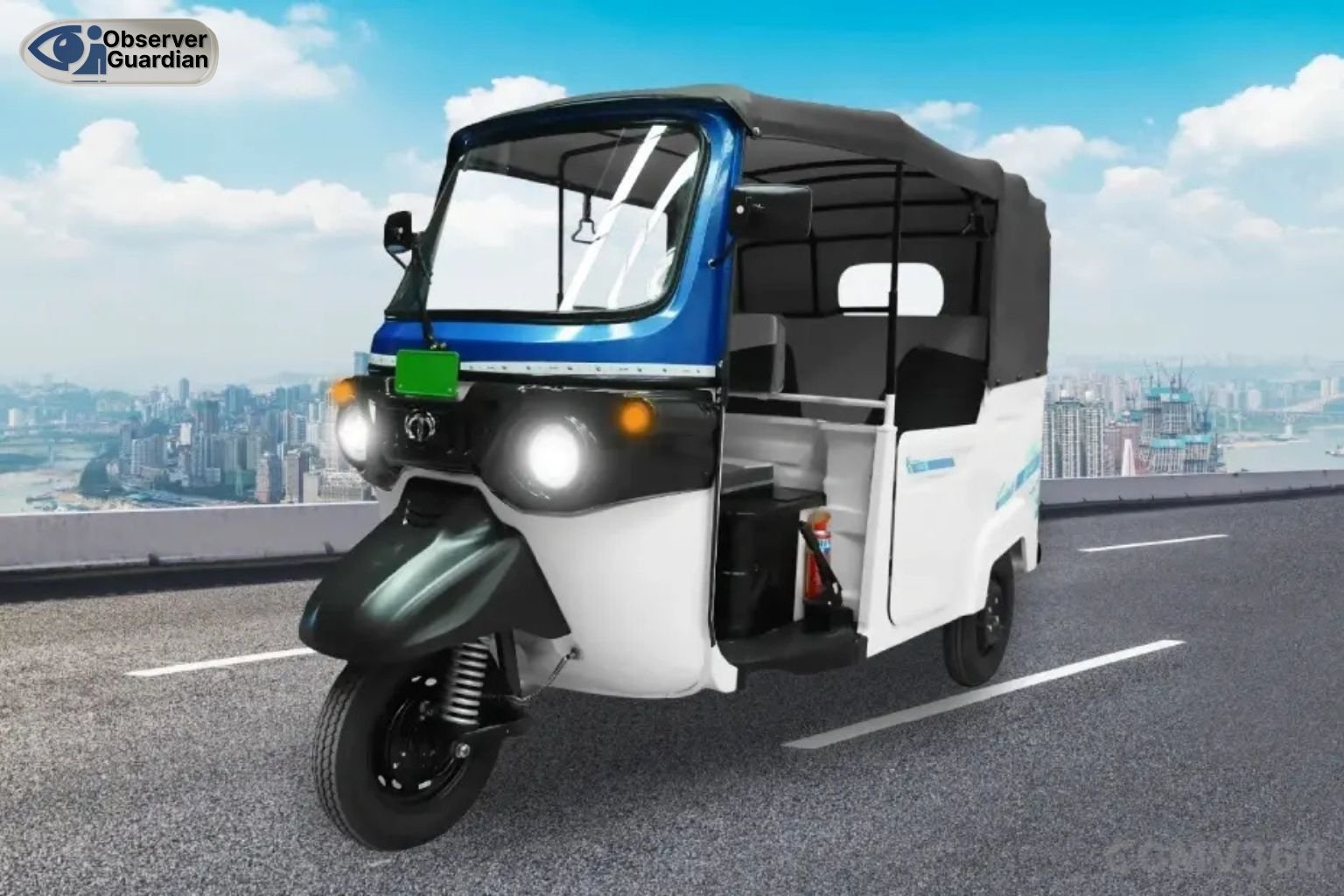In a notable move toward cleaner urban transport, a Japanese firm has officially launched its electric three-wheeler model, Kyoro, in Pakistan. The vehicle is positioned for both passenger mobility and last-mile logistics, boasting a claimed driving range of 200 kilometres on a single charge, with a top speed exceeding 55 km/h.
The Kyoro is powered by an 11.7 kWh battery pack and features a two-speed gearbox to help with acceleration and climbing inclines. It is reported to fully charge in around four hours. The company is now actively seeking distribution partners in Pakistan to roll out the model across major urban centers.
Design and Technical Specifications
The Kyoro’s design is tailored for city travel and delivery operations. It comes with a two-speed gearbox, an uncommon feature in simple EV rickshaws, which helps the vehicle manage inclines and heavier loads more efficiently. With its 11.7 kWh battery capacity, the company claims the vehicle can cover up to 200 km on a full charge. Its top speed is above 55 km/h, which is well-suited for city roads, and the charging time is kept practical at about four hours.
Market Context and Need in Pakistan
Pakistan already has a massive population of traditional three-wheelers, most of which run on fossil fuels. Rising petrol costs, urban pollution, and a growing demand for sustainable alternatives have created a space for electric vehicles. However, challenges such as weak charging infrastructure, unreliable power supply, and high upfront costs continue to slow progress. The arrival of a Japanese-engineered EV rickshaw could help raise the standard of technology and reliability in this segment.
Potential Benefits for Drivers and Communities
The Kyoro could bring multiple advantages to both drivers and city residents. For drivers, reduced operating costs and longer working hours per charge mean more potential earnings. For communities, lower emissions and quieter operation could improve both air quality and noise conditions in crowded urban areas. Additionally, the entry of a global manufacturer may encourage local assembly, spare parts supply, and job creation within Pakistan’s automotive ecosystem.
FM Dar Arrives in New York for UNGA Session Focused on Palestine
Challenges and Risks Ahead
Despite the excitement, several hurdles need to be addressed. The lack of a reliable charging infrastructure is one of the biggest obstacles to adoption. Power shortages and fluctuating electricity tariffs could also undermine cost benefits. Battery degradation and replacement costs remain concerns for long-term ownership. Moreover, without a proper after-sales and spare parts network, drivers may hesitate to invest in the vehicle. Finally, the higher upfront cost compared to conventional rickshaws makes financing and government incentives crucial for large-scale adoption.
Outlook for the Future
The launch of the Kyoro signals a new chapter in Pakistan’s push toward greener mobility. If supported by strong distribution networks, after-sales services, and government-backed incentives, this Japanese EV rickshaw could become a model for the wider adoption of electric vehicles in the country. Over time, success in the three-wheeler market may open the door for larger vehicle classes, including electric vans and buses, making Pakistan’s transportation sector more sustainable.







